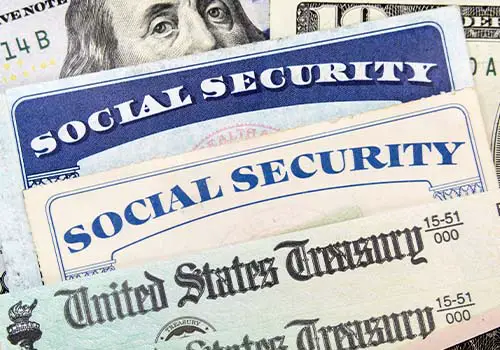Some people may retire early and begin taking their Social Security retirement benefits early. Others might have enough retirement savings to quit working before they start their Social Security benefits.
However, since most people get their health insurance through an employer-sponsored plan, what do you do when you retire? The standard eligibility age for Medicare is 65, but can you get it at 62 if you are already retired? What other medical insurance options are available?
Keep reading as we provide all the details about qualifying for Medicare at age 62 and what other options you might have if you can’t get Medicare.
Can You Get Medicare If You Retire At Age 62?
Generally, you cannot get Medicare at 62 if you retire early. You may have recently seen information about Medicare at age 60 in the news, but that is not a change that has taken effect.
So, how old do you have to be to get Medicare? Enrollment in Medicare requires that you are 65 or older, although this rule has a couple of exceptions.
- If you are diagnosed with end-stage renal disease (ESRD), you can qualify for Medicare at any age.
- Similarly, if you are diagnosed with amyotrophic lateral sclerosis (Lou Gehrig’s disease), you can also qualify for Medicare at any age.
- Finally, those who receive Social Security disability benefits can qualify for Medicare at age 62.
Typically, you will be automatically enrolled in Medicare after your 24th month of SSDI eligibility. These are the only three ways for younger individuals to qualify for Medicare benefits.
If you do not meet one of these criteria, you will not be eligible for Medicare until your 65th birthday. We will discuss the eligibility criteria for Medicare coverage in the next section.
KEY TAKEAWAYS
- Medicare is not available at 62; even if you claim Social Security early, you must wait until age 65 to enroll in Medicare.
- In a few situations, you might be eligible for Medicare if you are under 65; you will need to be receiving Social Security Disability benefits (SSDI) for 24 months, diagnosed with end-stage renal disease (ESRD), or diagnosed with Lou Gehrig’s disease.
- Alternative healthcare coverage exists for those under age 65, such as Retiree Health Plan, COBRA, Employer-Sponsored plans, and sometimes, Medicaid.
Medicare Eligibility Age Requirements

So, at what age can you get Medicare? A couple of requirements must be met for you to qualify for Medicare. First, you must be 65 or older. Next, you must be a U.S. citizen or permanent resident.
- Younger individuals may qualify for Medicare but must meet one of the disability criteria, like kidney failure, mentioned in the previous section.
Your initial enrollment period for Medicare benefits begins three months before the month in which you turn 65. It runs through your birthday month and covers three months past your birthday. During this time, you can enroll in Medicare Part A, Medicare Part B, Medicare Part C, and Medicare Part D without any late enrollment penalties. You might opt out of this coverage since Medicare Part B carries a monthly premium. However, signing up for Part B coverage later might require the payment of a late penalty unless you qualify for a special enrollment period.
- If you are already receiving benefits from the Social Security Administration (SSA) or Railroad Retirement Board upon reaching age 65, you will be automatically enrolled in Medicare coverage.
Remember that the Medicare and Social Security retirement ages are different. The full retirement age for Social Security is 66 or 67 for most people. If you are not already receiving your Social Security benefits, you must apply for Medicare when you turn 65.
The exact age requirements apply to Medicare Advantage, Medigap, and standalone drug plans. Although private insurance companies manage these plans, they must follow the same beneficiary eligibility rules as Original Medicare. The Medicare program contracts with these companies to provide this coverage, and you can visit the Medicare website to find a plan in your area.
Must read articles related to Medicare
- What is a Medicare flex card for seniors & how does it work?
- How is Medicare funded?
- Dive into the different aspects of Medicare tax.
- What (if any) dental services are covered by Medicare?
- Overview of what is covered under Medicare.
Health Insurance Enrollment Options For Those Under 65
So, what health plan options do you have if you are under 65? Thankfully, several options exist, and you should be able to find one that works for you. Here are the different ways that you can get coverage.
Employer-Sponsored Plan
An employer-sponsored plan is one of the best ways to get health insurance coverage at age 62. Many people who are still working at age 62 are still eligible for coverage through their employer’s plan.
These plans typically provide medical insurance, prescription drug coverage, and other benefits. If you already have coverage through your employer, there is nothing you need to do when you turn 62. Your coverage will continue as usual, and you will keep receiving the exact coverage you had before you turned 62.
Retiree Health Plan
Even if you are retired, you might be eligible for a retiree health plan from your employer. Some employers offer group health plans to retirees, which is a great option to bridge the gap for those who retire early until they become eligible for Medicare.
Retiree health plans are prevalent among workers covered by a union contract. If you have questions about this plan or how to sign up, contact your employer’s HR department. They can help you understand the options and get signed up for the right plan.
COBRA Coverage
COBRA is a law that requires group health plans to extend coverage for a certain period after your employment ends. In most cases, employers with more than 20 employees must participate, and you must be allowed to extend coverage for up to 18 months. This is another way to bridge the gap from your retirement to the start of your Medicare benefits.
However, you should know a couple of things. First, you will likely be responsible for the entire monthly premium. Since your employer usually covers at least 50% of your premium, you can expect your insurance premium to be double or triple in some cases. Next, you might not have this option if you work for a small company with fewer than 20 employees. Thankfully, any money you have already paid toward your annual deductible should remain the same.
Government Healthcare Programs
The Affordable Care Act made finding and enrolling in a health care plan much more straightforward, even if you are not eligible through an employer-sponsored plan. You can find health coverage through the online marketplace. Insurance companies will show you the available plans, and you can sign up for one until you are eligible for Medicare enrollment.
The biggest drawback of this option is usually the cost. These plans are available through private insurance companies, and the price is generally relatively high. Visit healthcare.gov to find the plans available in your area.
Medicaid
If your income is below the threshold set in your state, you could qualify for Medicaid coverage. Medicare and Medicaid are two different programs. Medicaid is a joint program between the federal government and each state. Most states allow participation in the Medicaid program if your household income is below $37,000.
A few states have not expanded their Medicaid program to include low-income adults, but you still might qualify if you care for someone under 18 in your household. You should contact your state’s Medicaid office to learn more about your state’s eligibility criteria or get signed up for coverage.
TIP
You may be able to reduce your Medicare premiums once your spouse reaches age 62. If you aren’t eligible for free Medicare, but your spouse is, once they reach age 62, you can claim their benefits and reduce any premiums you might be paying.
How Reaching Age 62 Can Affect Your Spouse’s Medicare Coverage

You should now know that you cannot get Medicare coverage at age 62 unless you qualify because of a disability. However, reaching age 62 can have an effect on your spouse’s Medicare coverage. Here is what you need to know about your spouse’s coverage.
First, remember that you must have paid Medicare taxes for ten years to qualify for premium-free Part A coverage. If you do not meet the work requirement, then you might pay as much as $500 per month for your Part A coverage.
- However, once your spouse reaches 62, you can qualify for premium-free coverage based on their work history.
Suppose you are 65 but do not qualify for premium-free Part A coverage. However, your spouse has enough work credits to qualify, but they are only 61 years old. As soon as your spouse reaches age 62, you can then qualify for premium-free Part A coverage based on their work record.
Although your spouse cannot enroll in their own coverage yet, their age and work history can prevent you from paying a monthly premium for your Part A coverage. Although you will still pay a Part B premium, avoiding the Part A premium could lead to huge savings for you each month.
The Bottom Line
So, when can I get Medicare? You cannot get Medicare at age 62 unless you qualify because of a disability. Even if you are retired, you cannot sign up for Medicare until you reach 65.
If you already get benefits from the Social Security office, you will be automatically enrolled in Medicare upon your 65th birthday. You must sign up for Medicare if you haven’t received Social Security benefits yet.
It is best to apply during your initial enrollment period. You can also sign up during the Medicare open enrollment period, but you might sometimes pay a late enrollment penalty.
Frequently Asked Questions
No, you cannot get Medicare at age 62 just because your spouse is already enrolled in coverage. However, turning 62 could have an effect on the cost of your spouse’s Medicare coverage.
If your spouse is paying a premium for Part A coverage, they might become eligible for premium-free coverage when you turn 62. If you have enough work credits to qualify for premium-free Part A coverage, your spouse will no longer have to pay a premium for their Part A coverage. However, you will not be eligible to sign up for Medicare until you reach age 65.
In most cases, you can get Medicare as early as age 65. This is one of the basics of Medicare. However, there are a couple of exceptions that allow you to qualify for Medicare at a younger age.
If you have been diagnosed with ESRD or ALS, you can qualify for Medicare before you reach 65. Likewise, if you have received SSDI benefits for the past 24 months, you can also qualify for Medicare. Outside of qualifying for Medicare due to a disability, you must be 65 to get Medicare.
First, you cannot usually qualify for Medicare until you reach age 65. However, if you qualify due to a disability, the cost will depend on a couple of factors. You can qualify for premium-free Part A coverage if you have enough work credits.
Part B includes a monthly premium, which is $175 in 2024. If your income is higher, your premium might increase. You can use Medicare’s premium calculator to see how much your premium will be. If you sign up for a Medicare Supplement plan or other private insurance, the cost will depend on your specific plan.
No, there are many items that Medicare does not cover. For example, Medicare does not provide dental or vision coverage.
Original Medicare also does not provide prescription drug coverage, although you can choose to add a Part D drug plan to your coverage. Medicare also does not pay for long-term care in a nursing home or assisted living facility. Despite these non-covered items, there are still many that Medicare does cover.
You can find a Social Security Administration office near you by using our SSA office locator and searching for your closest location.





